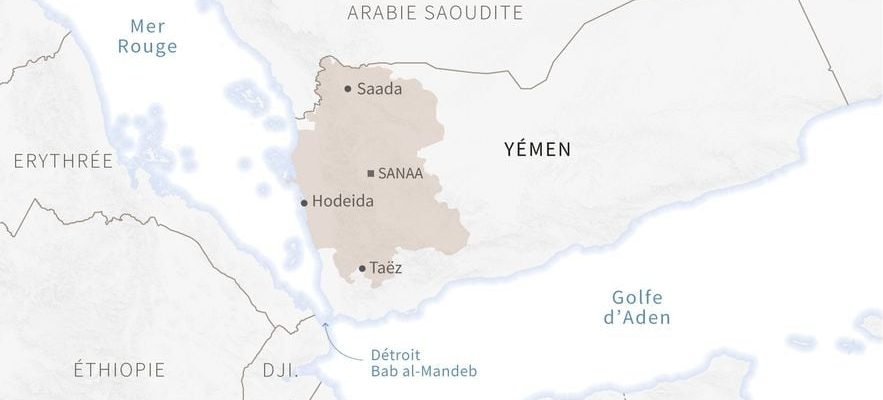A month ago, the French navy was the second to use its weapons against the threat posed by the Houthis in the Red Sea, after the United States Navy. The multi-mission frigate (FREMM) Languedoc thus shot down several drones piloted by the rebel militia, supported by Iran, with its Aster missiles. Master of northern Yemen, it declared war on Israel after the launch of the land operation in Gaza and has since increased attacks off its coasts against ships they consider linked to Israel.
Agreeing on the need to ensure the protection of commercial boats passing through the Red Sea, Paris and Washington now diverge in their response to Houthi aggression. On the night of January 11-12, the United States, in coordination with the United Kingdom, carried out bombings against radars and drone and missile infrastructure in Houthi territory. For its part, France, requested in advance by its allies, chose to stay out of this campaign of strikes.
“If France had the means to participate, in the same way as the British, it probably did not want to join this pattern of military escalation with the Houthis,” explains Jérémy Bachelier, researcher at the French Institute of International Relations. (IFRI). It certainly prefers to remain, at this stage, in the previous pattern of escorting boats sailing in the Red Sea and ensuring freedom of navigation, not hesitating to intervene to face the threats that arise. , as did the frigate Languedoc.”
US and UK strikes against Houthi sites in Yemen
© / afp.com/Valentin RAKOVSKY, Paz PIZARRO, Olivia BUGAULT
A European mission under study
On the side of Paris, there is the fear that these retaliatory strikes against the Houthis, far from leading to a de-escalation with the Houthi forces, will prove counterproductive, L’Express learned elsewhere. This fear echoes that expressed publicly by Saudi Arabia. It indicated that it was following “with great concern the military operations in the Red Sea and the airstrikes on a number of sites” in Yemen, calling “for restraint and to avoid escalation”. “All American-British interests have become targets,” warned the Houthi authorities after the bombings.
For several weeks, France has been supporting the coalition launched in mid-December by the United States, “Guardian of Prosperity”, which includes the United Kingdom, Canada, Australia, Bahrain, the -Bas, Greece, Norway and Denmark – it is via this device that it takes its part in patrols in the Red Sea, when it is not escorting French ships. On the other hand, it could participate directly in the mission studied by European Union countries to complement that under American leadership.
The day before the strikes, the commander of French operations in the Indian Ocean, Vice-Admiral Emmanuel Slaars, recalled that “there is no subordination to the American partner”. However, he clarified that there was an “intelligent geographical distribution of efforts” with the allied navies in the area, starting with that of the United States. “We share our information,” he continued. “Our buildings are linked together so that what is detected by one is seen in real time [par tous].”
French ships also benefit from the logistical support provided by the proximity of Djibouti, the country facing Yemen at the Bab el-Mandeb Strait, gateway to the Red Sea, and the Suez Canal. France has its largest foreign base at this strategic crossroads, with 1,500 soldiers. The cooperation treaty between the two countries is soon to expire. France’s non-participation in the strikes on Yemen has the advantage of not disrupting negotiations which are well underway.
.
